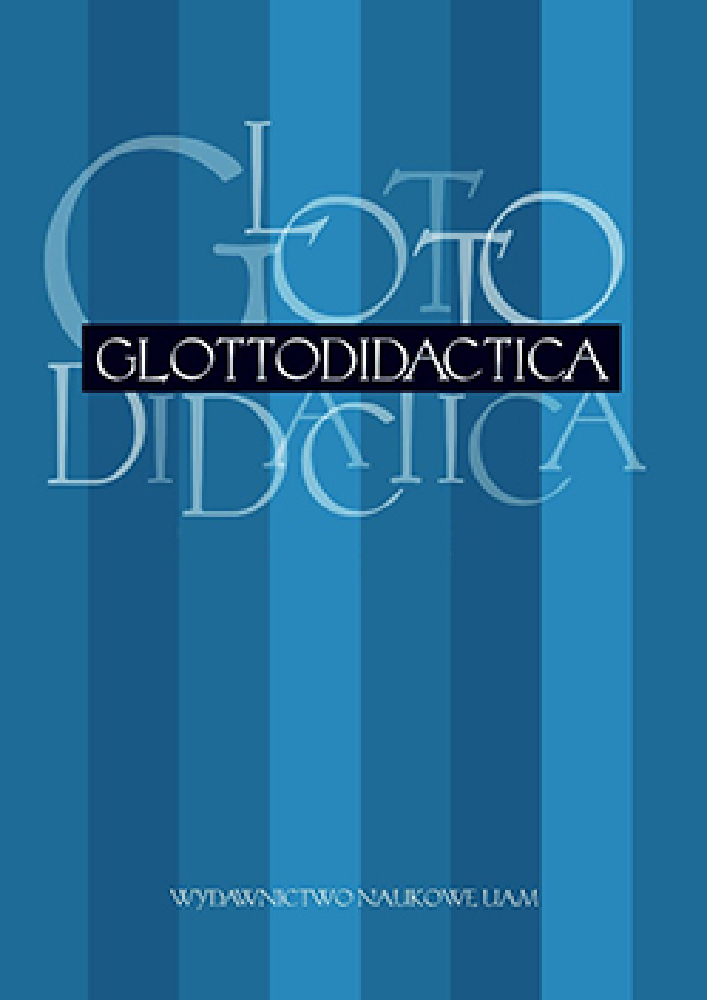Abstract
The paper focuses on the analysis of free indirect discourse as a modernist narrative form. We outline the basic narrative and linguistic characteristics of free indirect discourse and examine its main functions in the literary texts. We undertake a comparative analysis of three examples of free indirect discourse (drawn from the texts of G. Flaubert, F. Kafka and V. Nabokov) and display their common and distinctive features.References
Fludemik M., 1993. The Fiction of Language and the Languages o f Fiction: the linguistic representation of speech and consciousness. London, Routledge.
Hodel R., 2001. Erlebte Rede in der russischen Literatur. Vom Sentimentalismus zum Sozialistischen Realismus. Frankfurt am Main: Peter Lang.
Maingueneau D., 1991. L'énonciation en linguistique française: embrayeurs, temps, discours rapporté. Paris: Hachette Supérieur.
Poncharal B., 2003. Linguistique contrastive et traduction. N° spécial: La représentation de paroles au discours indirect libre en anglais et en français. Paris: Ophrys.
Toolan M.J., 1994. Narrative: a critical linguistic introduction. London, New York: Routledge.
Flaubert G., 2003. L'Education sentimentale. Paris: Editions Gallimard.
Kafka F.,1990. Der Proceß. ln: Pasley, M. (Hrsg.) Kritische Ausgabe. Bd. 4 Frankfurt am Main: S. Fischer.
Fludemik M., 1993. The Fiction o f Language and the Languages of Fiction: the linguistic representation of speech and consciousness. London, Routledge.
Hodel R., 2001. Erlebte Rede in der russischen Literatur. Vom Sentimentalismus zum Sozialistischen Realismus. Frankfurt am Main: Peter Lang.
Maingueneau D., 1991. L'énonciation en linguistique française: embrayeurs, temps, discours rapporté. Paris: Hachette Supérieur.
Poncharal B., 2003. Linguistique contrastive et traduction. N° spécial: La représentation de paroles au discours indirect libre en anglais et en français. Paris: Ophrys.
License
Authors
Authors of texts accepted for publication in Glottodidactica are required to complete, sign and return to the Editorial team’s office the Agreement for granting a royalty-free license to works with a commitment to grant a CC sub-license.
Under the agreement, the authors of the texts published in Glottodidactica grant Adam Mickiewicz University in Poznań a non-exclusive, royalty-free license and authorize the use of Attribution-NoDerivatives 4.0 International (CC BY-ND 4.0) Creative Commons sub-license.
The authors retain the right to the free disposal of the work.
Users
Interested Internet users are entitled to use works that have been published in Glottodidactica since 2016, under the following conditions:
▪ attribution – obligation to provide, together with the distributed work, information about the authorship, title, source (link to the original work, DOI) and the license itself.
▪ no derivatives – the work must be preserved in its original form. Without the author's consent, it is not possible to distribute the modified work in the form of translations, publications, etc.
Copyrights are reserved for all texts published before 2016.
Miscellaneous
Adam Mickiewicz University in Poznań retains the property right as a whole (layout, graphic form, title, cover design, logo etc.).
Privacy statement
The names and email addresses published on this journal site will be used exclusively for the purposes declared by this journal and cannot be used for any other purpose or by any other party.




